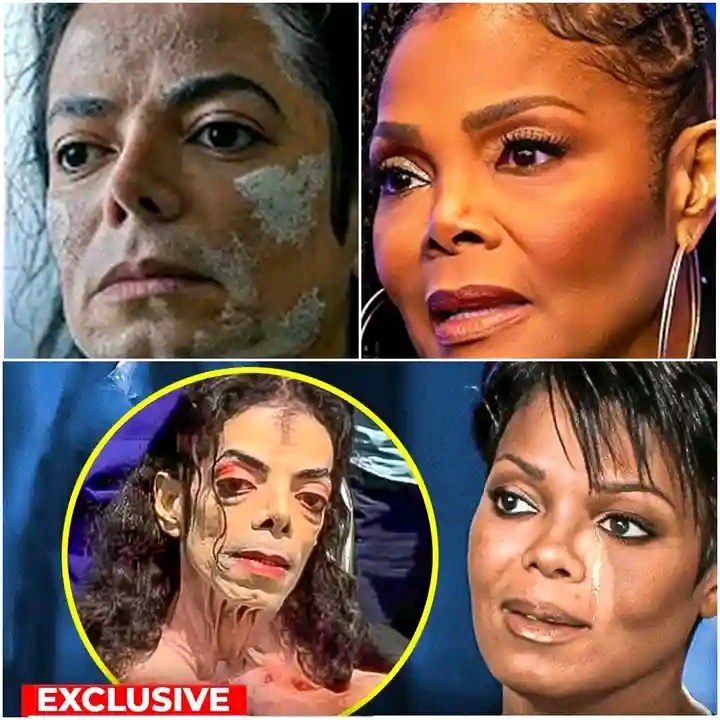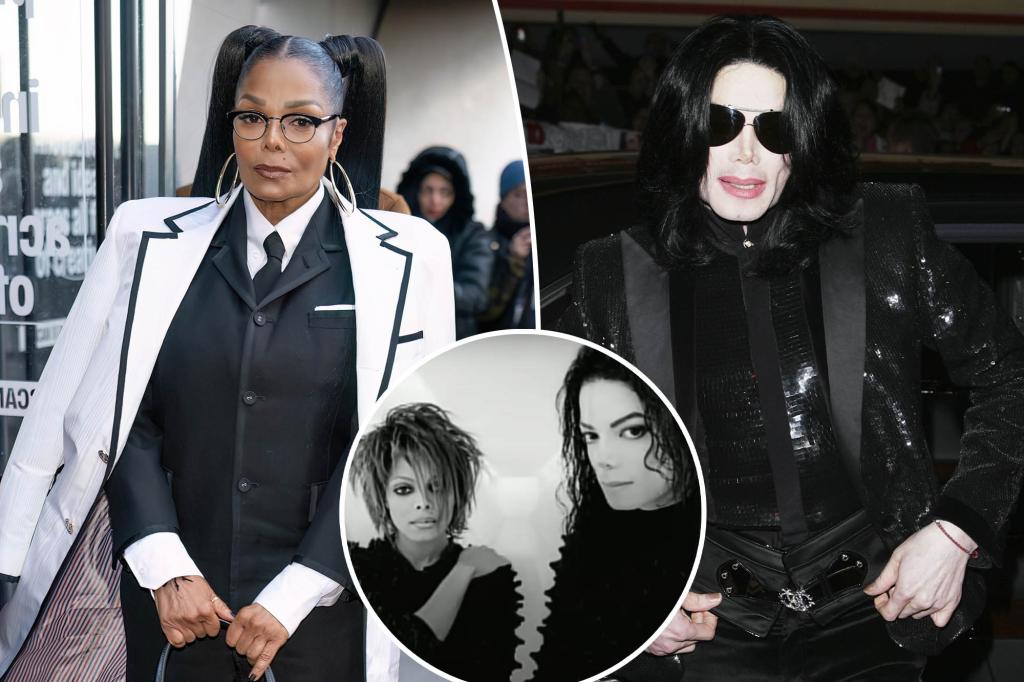CELEBRITY
A Family’s Anguish: Janet Jackson Breaks Her Silence on the Dark Secrets Behind Michael Jackson’s Final Days…

The news hit with the force of a wrecking ball. On June 25, 2009, the world stood still as the impossible was announced: Michael Jackson, the King of Pop, was dead. A collective gasp echoed across the globe, a mixture of shock, grief, and disbelief.
For millions of fans, it was the end of an era. But for his family, it was a cataclysmic loss, one that would be felt not just in the public spotlight but in the quiet, private corners of their lives. For Janet Jackson, his younger sister, the pain was not just profound—it was a complex web of emotions, a mix of love, sorrow, and a simmering suspicion that something was terribly wrong. Now, more than a decade later, she is finally speaking out, revealing truths that have long remained hidden in the shadows.

The loss was a personal one for Janet, one she struggled to process in the immediate aftermath. For a long time, she suppressed her emotions, unable to confront the anguish of losing not just a brother, but a childhood friend. She found herself in Paris, a world away from the media circus, trying to come to terms with a new, unwelcome reality.
In her own words, she admitted to having to face the pain head-on. “I am determined to overcome this situation,” she confessed, “as it is detrimental to my well-being.” She found solace in his music, spending a night immersed in his videos and songs, a therapy of memories that brought forth both tears and laughter. It was a raw, deeply personal form of mourning that went beyond the public tributes and performances.
But Janet’s revelations go beyond the emotional and into the hauntingly speculative. Her family has long harbored a belief that Michael’s death was not an accident. Her older sister, LaToya, has been an outspoken advocate for this theory for years, arguing that Michael was a target. LaToya claimed that Michael believed evil-doers were after his vast music publishing catalog and intellectual property, and he sensed his life was in danger.
Janet, in her own quiet way, seems to share this conviction. The family’s suspicions center on Dr. Conrad Murray, the personal physician who was ultimately found guilty of involuntary manslaughter in Michael’s death. But for the Jacksons, the story is far more intricate than medical negligence.
The family points to a sinister pattern of events in Michael’s final years. LaToya has spoken of how his trusted inner circle was allegedly cut off by a man she calls Dr. Tom, who oversaw Michael’s business affairs. This created a vacuum, allowing influential people to allegedly guide Michael away from his best interests and into financial deals that benefited them.

The theory suggests that Michael’s immense wealth and valuable copyrights, which he had amassed over his career, made him a target. In their view, someone wanted him out, and the tragic propofol overdose was not a mistake but a pre-meditated act. It’s a chilling narrative, one that has resonated with many who feel the official story doesn’t fully add up.
To understand the profound impact of this family tragedy, one must look at the complicated dynamics of the Jackson family itself. Michael was the eighth of ten children born to Katherine and Joe Jackson in a modest two-bedroom home in Gary, Indiana























